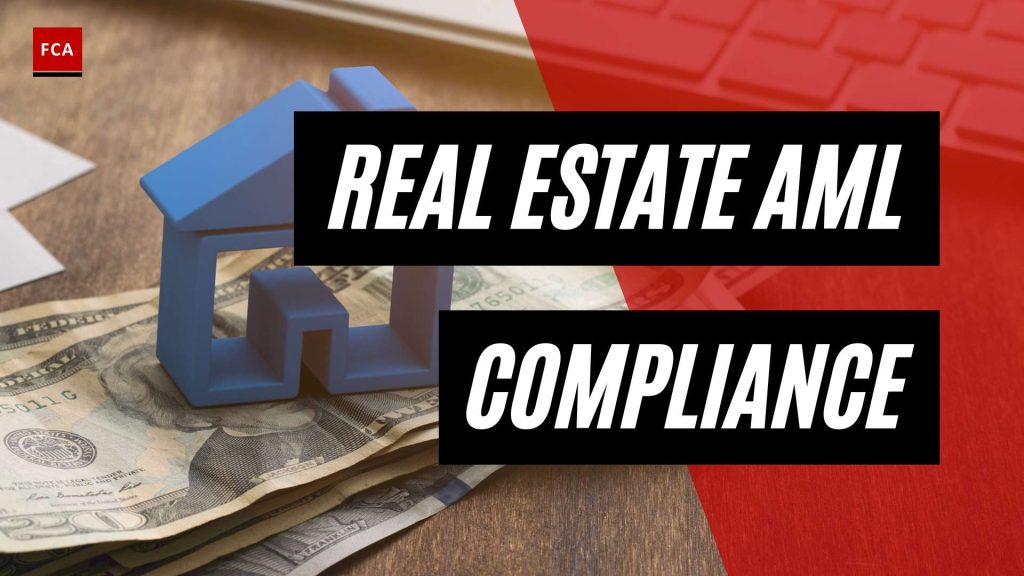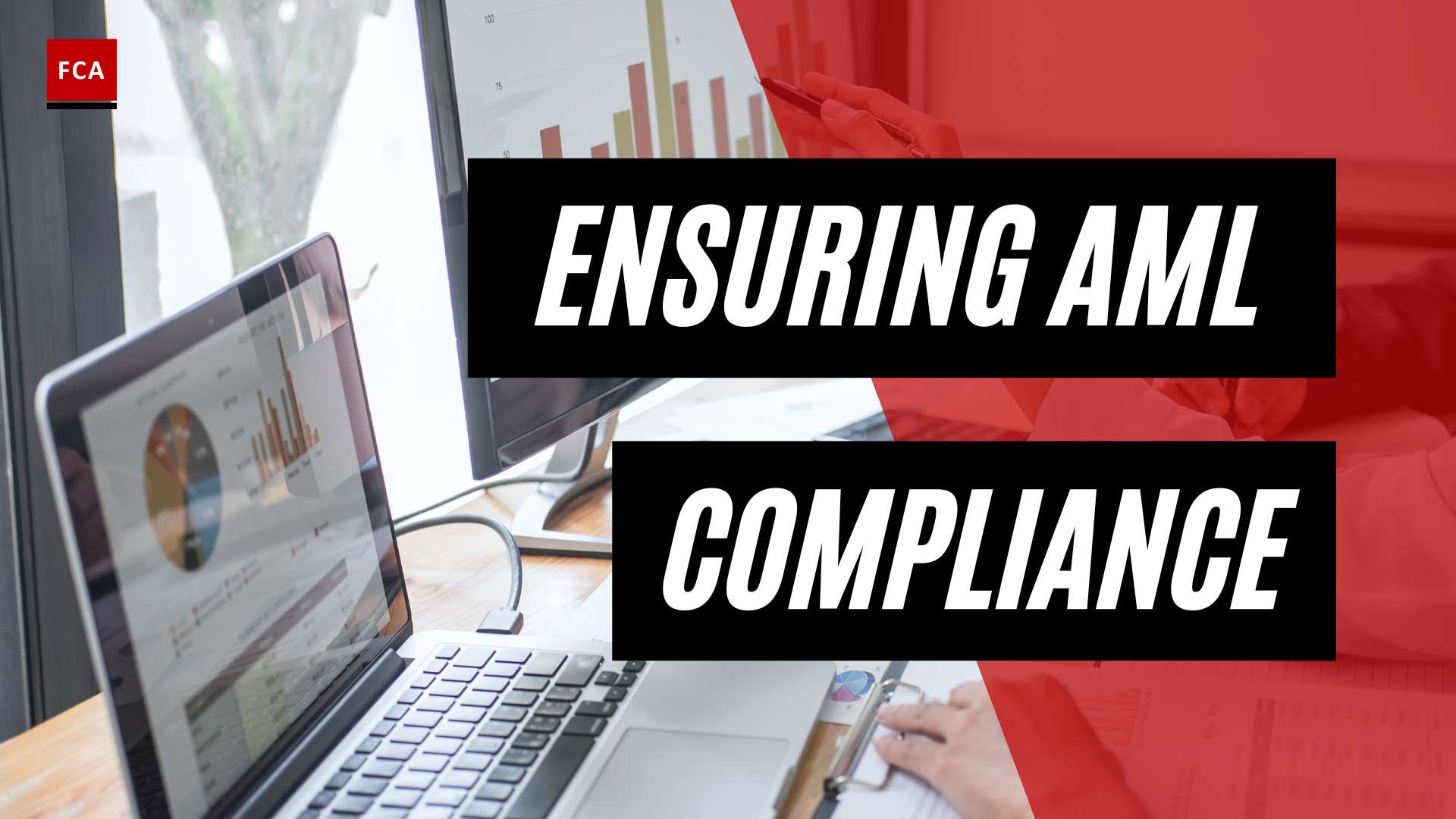AML Regulations in Real Estate
In recent years, the real estate sector has become a focus of efforts to combat money laundering and illicit financial activities. Anti-Money Laundering (AML) regulations have been introduced to ensure transparency and accountability within the industry. These regulations aim to detect and prevent the use of real estate transactions for money laundering purposes.
Introduction to AML Regulations
AML regulations in real estate are designed to identify and mitigate the risk of money laundering and the financing of terrorism through real estate transactions. These regulations require professionals involved in the industry to establish robust AML programs and comply with reporting obligations.
On February 7, 2024, the US Department of the Treasury’s Financial Crimes Enforcement Network (FinCEN) proposed a rule that would require certain professionals involved in real estate closings and settlements to report information to FinCEN about non-financed transfers of residential real estate to legal entities or trusts (Mayer Brown). This proposed rule aims to enhance transparency and gather valuable data to combat money laundering in the real estate sector.
Importance of AML Regulations in Real Estate
The importance of AML regulations in the real estate industry cannot be overstated. Money laundering poses significant risks to the integrity of the sector, as it can facilitate criminal activities and undermine the stability of financial systems. By implementing AML regulations, authorities aim to protect real estate professionals, buyers, and the overall market from the negative consequences of money laundering.
The proposed reporting requirements and AML obligations for professionals involved in real estate transactions are essential tools in the fight against money laundering. These requirements aim to close potential loopholes and ensure that real estate transactions are conducted in a transparent and accountable manner. By designating reporting persons and enforcing reporting obligations, authorities can gather crucial information to detect suspicious activities and strengthen the effectiveness of AML efforts.
Non-compliance with AML regulations can result in severe consequences. Violations can lead to legal and financial penalties, reputational damage, and even the closure of businesses (NAR). Therefore, it is imperative for professionals in the real estate industry to understand and adhere to AML regulations to protect themselves, their clients, and the integrity of the sector as a whole.
In the following sections, we will explore the proposed reporting requirements, the designation of reporting persons, compliance and due diligence measures, global AML regulations in real estate, the importance of identity verification, vulnerabilities in the real estate sector, and AML compliance best practices. Understanding these aspects will provide professionals in the real estate industry with the necessary knowledge and tools to navigate the complex landscape of AML regulations and contribute to a safer and more secure real estate market.
Proposed Reporting Requirements
To enhance the effectiveness of anti-money laundering (AML) efforts in the real estate sector, the US Department of the Treasury’s Financial Crimes Enforcement Network (FinCEN) has proposed a rule that would introduce new reporting requirements for professionals involved in real estate closings and settlements. These requirements aim to address potential money laundering risks associated with non-financed transfers of residential real estate to legal entities or trusts (Mayer Brown).
Overview of Proposed Rule
The proposed rule would apply to a wide range of residential real property transfers, including single-family houses, townhouses, condominiums, cooperatives, and buildings designed for occupancy by one to four families. It would also encompass transfers of vacant or unimproved land zoned or permitted for occupancy by one to four families (Mayer Brown). By expanding the scope of reporting, the aim is to ensure that potential money laundering activities within the real estate market are more effectively monitored and prevented.
Scope of Reporting Requirement
The reporting requirement would specifically target non-financed transfers, which refers to transactions that do not involve an extension of credit secured by the transferred property from a covered financial institution subject to AML program and Suspicious Activity Report (SAR) reporting obligations (Mayer Brown). This means that cash transactions and transfers involving non-traditional financing methods would be subject to reporting requirements.
Reporting Obligations for Non-Financed Transfers
Under the proposed rule, certain professionals involved in real estate transactions would be designated as reporting persons responsible for filing Real Estate Reports with FinCEN. These professionals may include settlement agents, title insurance agents, escrow agents, and attorneys. The reporting obligation follows a cascading reporting order, where different professionals are identified based on their level of involvement in the real estate transaction (Mayer Brown).
Covered Legal Entities and Trusts
To ensure comprehensive reporting, the proposed rule would cover both domestic and foreign legal entities and trusts used to own property. This includes entities such as limited liability companies, corporations, partnerships, common law and statutory trusts. However, certain exceptions would apply for highly regulated entities and specific types of trusts that are less likely to be used for money laundering through residential real property.
By implementing these proposed reporting requirements, the authorities aim to enhance transparency and oversight in real estate transactions, making it more difficult for illicit funds to flow through the real estate market. It is important for professionals in the real estate industry to stay informed about these developments and be prepared to comply with the new reporting obligations to prevent money laundering activities effectively.
Designation of Reporting Persons
To effectively combat money laundering in the real estate sector, the proposed regulations for Anti-Money Laundering (AML) in real estate transactions introduce the designation of reporting persons. These reporting persons are professionals responsible for filing reports to ensure compliance with AML regulations. Additionally, a cascading reporting order is established to identify the specific professionals involved in the real estate transaction and their reporting obligations.
Professionals Responsible for Filing Reports
Under the proposed rule, certain professionals would be designated as reporting persons who are responsible for filing Real Estate Reports with the Financial Crimes Enforcement Network (FinCEN). These professionals may include settlement agents, title insurance agents, escrow agents, and attorneys (Mayer Brown). By assigning this responsibility to professionals involved in real estate transactions, the proposed regulations aim to enhance transparency and facilitate the detection and prevention of money laundering activities.
The reporting obligations of these professionals play a critical role in safeguarding the real estate sector from potential illicit activities. They are required to report certain information to FinCEN, including details about the beneficial owner of the real estate, in accordance with the proposed rule (Federal Register). This information is vital for ensuring transparency and preventing the misuse of real estate transactions for money laundering purposes.
Cascading Reporting Order
The cascading reporting order establishes a systematic approach to determine the reporting obligations based on the level of involvement of professionals in the real estate transaction. Different professionals are identified and designated as reporting persons depending on the specific circumstances of the transaction.
The proposed regulations require covered businesses to report certain information to FinCEN on transactions conducted without a bank loan or similar form of external financing (Federal Register). The reporting obligations are designed to capture relevant information about the beneficial owner of the real estate, contributing to the overall efforts in preventing money laundering activities in the real estate sector.
By implementing the cascading reporting order, the proposed regulations ensure that the responsibility for reporting is assigned to the appropriate professionals involved in the transaction. This approach enhances the effectiveness of AML measures and promotes a more comprehensive understanding of the parties involved in real estate transactions.
As the real estate industry continues to face increasing scrutiny in relation to money laundering risks, the designation of reporting persons and the establishment of a cascading reporting order are crucial steps towards strengthening AML regulations and protecting the integrity of the real estate sector. Compliance with these reporting obligations is vital to mitigate risks and contribute to the global efforts against money laundering activities.
Compliance and Due Diligence
To ensure effective anti-money laundering (AML) practices in the real estate industry, compliance and due diligence are of utmost importance. Real estate professionals must establish risk-based AML programs, fulfill due diligence requirements, and promptly report any suspicious activities. By adhering to these practices, industry professionals can play a vital role in combating money laundering and protecting the integrity of the real estate sector.
Risk-Based AML Programs
Real estate professionals are encouraged to maintain risk-based AML programs that can be tailored to the unique circumstances of each business. These programs should encompass policies, procedures, and internal controls designed to detect and prevent money laundering activities. By assessing the specific risks associated with their operations, professionals can implement appropriate measures to mitigate those risks.
Due Diligence Requirements
Compliance with AML regulations requires real estate professionals to conduct thorough due diligence on their clients and transactions. This process involves identifying beneficial owners, verifying the source of funds, and assessing the potential risks associated with a particular transaction. By diligently performing these due diligence measures, industry professionals can identify and prevent suspicious activities within the real estate sector (NAR).
Reporting Suspicious Activities
Real estate professionals have a crucial role to play in combating money laundering by promptly reporting any suspicious activities, transactions, or behaviors they encounter. By being vigilant and aware of potential red flags, professionals can help identify and prevent illicit activities. Reporting suspicious activities to the appropriate authorities is essential for maintaining the integrity of the real estate industry and deterring money laundering (NAR).
In addition to complying with AML regulations, real estate professionals can leverage identity verification solutions like Persona to enhance their due diligence efforts. Persona’s platform offers tools to automate compliance operations, conduct efficient manual review investigations, and seamlessly onboard businesses and individuals while ensuring regulatory compliance and fighting fraud in real estate transactions (Persona Blog). By utilizing such technological solutions, real estate professionals can streamline their compliance processes and ensure adherence to shifting KYC/AML regulations.
By prioritizing compliance and due diligence, real estate professionals contribute to the overall integrity of the industry and help protect against money laundering risks. Implementing risk-based AML programs, fulfilling due diligence requirements, and promptly reporting suspicious activities are essential steps in maintaining a secure and transparent real estate sector.
Consequences of Non-Compliance
The consequences of non-compliance with Anti-Money Laundering (AML) regulations in the real estate sector can be severe, encompassing legal, financial, and reputational ramifications. It is crucial for professionals in the industry to understand these consequences to ensure compliance and mitigate risks.
Legal and Financial Penalties
Violations of AML regulations can result in significant legal and financial penalties. Regulatory bodies and authorities have the power to impose hefty fines, seize assets, and even pursue criminal charges against individuals and businesses found in breach of AML requirements.
The exact penalties vary depending on the jurisdiction and the severity of the violation. In some cases, fines can amount to millions of dollars or a percentage of the transaction value. Imprisonment sentences may also be handed down to individuals involved in money laundering activities within the real estate sector.
Reputational Damage
Non-compliance with AML regulations can lead to substantial reputational damage for individuals and businesses in the real estate industry. News of involvement in money laundering or failure to implement effective AML measures can quickly spread, damaging the trust and credibility of the professionals involved.
Reputational damage can have long-lasting effects, leading to a loss of clients, business opportunities, and partnerships. Rebuilding trust and regaining a positive reputation can be a challenging and time-consuming process.
Closure of Business
In severe cases of non-compliance, regulatory authorities may take action to close down a business involved in money laundering or persistent non-compliance with AML regulations. This can have devastating consequences, resulting in the loss of jobs, financial instability, and potential legal battles.
The closure of a business due to non-compliance serves as a strong deterrent, highlighting the importance of adhering to AML regulations and implementing robust compliance programs in the real estate sector.
To avoid these severe consequences, real estate professionals must prioritize AML compliance, diligently assess and monitor transactions, conduct thorough due diligence, and report any suspicious activities to the relevant authorities. By doing so, they can safeguard their businesses, protect their reputations, and contribute to a more secure and transparent real estate industry.
Global AML Regulations in Real Estate
To combat the risks of money laundering and terrorist financing in the real estate sector, countries around the world have implemented Anti-Money Laundering (AML) regulations. These regulations aim to ensure transparency, accountability, and integrity in real estate transactions. Let’s explore some of the key global AML regulations in the real estate industry.
FATF Guidelines and Standards
The Financial Action Task Force (FATF) plays a pivotal role in setting international standards and guidelines for combating money laundering and terrorist financing. The FATF provides comprehensive recommendations that countries can adopt to develop their AML frameworks, including measures specific to the real estate sector. These guidelines focus on risk assessments, customer due diligence (CDD), record keeping, and reporting suspicious activities. By adhering to the FATF guidelines, countries can strengthen their AML controls, promoting a more secure real estate environment globally. For more information on the FATF and its guidelines, visit the Financial Crime Academy.
AML Regulations for Real Estate Agents in the UK
In the United Kingdom, real estate agents are required to comply with AML regulations to prevent money laundering and terrorist financing. They must register with HM Revenue and Customs (HMRC) for AML purposes. These regulations aim to ensure that real estate agents conduct proper due diligence on their customers, identify potential risks, and report suspicious activities. Failure to comply with these regulations can result in severe legal and financial penalties, as well as reputational damage. To learn more about AML regulations for real estate agents in the UK, refer to Sanction Scanner.
AML Solutions for Real Estate Agencies
Real estate agencies can leverage AML solutions to enhance their compliance efforts and meet regulatory requirements. For example, Sanction Scanner offers AI-supported AML solutions specifically designed for real estate agencies. These solutions enable real estate agents to conduct necessary AML checks during property sales within seconds, helping determine the risk level of buyers and sellers through customer due diligence reports. By utilizing customizable media checks, global sanctions screening, and automated compliance operations, real estate agencies can streamline their AML compliance processes and mitigate the risk of money laundering in real estate transactions. Find out more about AML solutions for real estate agencies at Sanction Scanner.
By adhering to global AML regulations, real estate professionals can contribute to a more secure and transparent real estate market. It is essential for industry participants to stay informed about evolving AML requirements, implement robust compliance programs, and utilize technology-driven solutions to effectively combat money laundering risks in the real estate sector.
Importance of Identity Verification
In the real estate sector, implementing effective AML (Anti-Money Laundering) measures is crucial to combat money laundering and terrorist financing. One key aspect of AML compliance is identity verification, which plays a vital role in ensuring the integrity and security of real estate transactions. By verifying the identities of all parties involved, businesses can mitigate the risk of fraudulent activities and protect themselves from potential legal and reputational consequences.
Persona’s AML Solutions for Real Estate
Persona offers comprehensive AML solutions specifically tailored for the real estate industry. With their platform, businesses can verify identities across more than 200 countries and regions, ensuring compliance with global regulations and enhancing their understanding of risks in real estate transactions (Persona Blog).
Persona’s platform leverages advanced technology to verify various types of documents, including business registrations, proof of income, and ownership information. By conducting thorough identity checks and utilizing two-factor authentication (2FA) and phone carrier matches, Persona helps businesses validate the identities of individuals and entities involved in real estate transactions.
Automated Compliance Operations
Automating compliance operations is essential for real estate businesses to streamline processes and maintain regulatory compliance. Persona’s platform offers tools to automate compliance operations without sacrificing conversion rates. This allows businesses to efficiently conduct manual review investigations, seamlessly onboard businesses and individuals, and ensure regulatory compliance while fighting fraud in real estate transactions (Persona Blog).
Customizable Media Checks and Sanctions Screening
To identify potential risks within the real estate sector, Persona’s platform provides customizable media checks and sanctions screening. By automating media checks across a vast database of over 400 million news articles, businesses can stay informed about potential red flags and emerging risks. Additionally, Persona enables businesses to screen individuals and entities against more than 100 global sanction and warning lists, ensuring compliance with regulatory requirements and mitigating the risk of engaging with sanctioned or high-risk parties (Persona Blog).
By leveraging Persona’s AML solutions, businesses in the real estate sector can enhance their identity verification processes, automate compliance operations, and stay informed about potential risks. These measures not only help ensure regulatory compliance but also protect businesses from the far-reaching repercussions of non-compliance, such as legal penalties, reputational damage, and even closure of business (NorthRow).
Vulnerabilities in Real Estate Sector
As the real estate sector continues to attract substantial investments and involve complex ownership structures, it becomes a prime target for money laundering and illicit financial activities. Understanding the vulnerabilities inherent in this industry is crucial in implementing effective Anti-Money Laundering (AML) controls. Let’s explore the specific vulnerabilities and risks associated with money laundering in the real estate sector, as well as the consequences of non-compliance with AML regulations.
Money Laundering Risks in Real Estate
The real estate sector poses significant money laundering risks due to the nature of its transactions. Large sums of money involved in real estate purchases can provide opportunities for illicit funds to be integrated into the legitimate economy. Criminals may exploit real estate transactions to obscure the origins of their illicit proceeds, making it vital for professionals in the industry to remain vigilant.
Some common money laundering techniques observed in real estate include the use of shell companies or trusts to hide beneficial ownership, purchasing properties through third parties, and property flipping to generate illicit gains. These activities can create challenges for regulatory authorities in identifying and tracking the true source of funds.
Lack of Effective AML Controls
The lack of effective AML controls in the real estate sector leaves businesses vulnerable to money laundering activities. Insufficient customer due diligence and transaction monitoring can enable illicit funds to flow through real estate transactions unnoticed. Inadequate screening against sanctions lists and failure to identify red flags can also contribute to an environment conducive to money laundering.
To mitigate these vulnerabilities, real estate professionals should implement robust AML programs tailored to their specific risk profiles. A risk-based approach allows businesses to allocate resources efficiently, focusing on higher-risk transactions and clients. By conducting thorough due diligence, implementing transaction monitoring systems, and staying updated on regulatory requirements, real estate professionals can enhance their AML controls and reduce the risk of facilitating money laundering activities.
Consequences of Non-Compliance
Non-compliance with AML regulations in the real estate sector can have severe consequences. Regulatory authorities are increasingly prioritizing the enforcement of AML regulations in this industry. Businesses that fail to comply with AML obligations may face legal and financial penalties, including substantial fines and imprisonment for individuals involved in the transactions.
Moreover, the reputational damage resulting from non-compliance can be significant, leading to a loss of investor confidence and potential business disruptions. Real estate professionals must understand the importance of implementing robust AML controls to protect their businesses, maintain regulatory compliance, and safeguard their reputation in the industry.
To address these vulnerabilities and combat money laundering risks effectively, it is crucial for real estate professionals to remain proactive in their compliance efforts. By adhering to AML regulations, conducting thorough due diligence, and reporting suspicious activities, the real estate sector can contribute to the global fight against money laundering and maintain the integrity of the industry.
AML Compliance Best Practices
To effectively combat money laundering and ensure compliance with Anti-Money Laundering (AML) regulations in the real estate industry, professionals should adhere to best practices in the areas of customer due diligence, screening against sanctions lists, and monitoring for suspicious activities.
Customer Due Diligence (CDD) Processes
Implementing robust Customer Due Diligence (CDD) processes is a fundamental practice in AML compliance for real estate professionals. This involves conducting thorough investigations into the identities of clients, beneficial owners, and any parties involved in the transaction. By verifying the identities and backgrounds of these individuals, real estate professionals can mitigate the risk of facilitating money laundering activities.
CDD processes typically include:
- Collecting and verifying identification documents, such as passports or government-issued identification cards.
- Gathering additional information about the client’s background and financial profile.
- Identifying beneficial owners and verifying their identities.
- Assessing the source of funds or wealth associated with the transaction.
- Conducting ongoing monitoring of the client’s activities for any suspicious behavior.
By implementing robust CDD processes, real estate professionals can establish a strong foundation for preventing money laundering and ensuring compliance with AML regulations.
Screening Against Sanctions Lists
Screening clients against global sanctions lists is another essential best practice for AML compliance in the real estate industry. These lists contain the names of individuals, organizations, and countries subject to financial sanctions due to their involvement in illegal activities or connections to terrorism.
Real estate professionals should utilize advanced screening tools to cross-check client names against these sanctions lists. This process helps to identify any potential red flags and ensure that transactions do not involve individuals or entities associated with illegal or sanctioned activities.
Automated screening systems and software can streamline this process, allowing real estate professionals to efficiently identify any matches and take appropriate action, such as reporting to the relevant authorities.
Monitoring for Suspicious Activities
Monitoring transactions and activities for suspicious behavior is crucial for detecting and reporting potential money laundering in the real estate sector. Real estate professionals should establish robust monitoring systems to identify any unusual patterns or high-risk transactions that may indicate money laundering or other illicit activities.
By setting up effective monitoring processes, real estate professionals can identify red flags such as:
- Structuring transactions to avoid reporting requirements.
- Frequent large cash payments.
- Unexplained or disproportionate funds transfers.
- Inconsistent or incomplete information provided by clients.
- Transactions involving high-risk jurisdictions or individuals.
Regularly reviewing and analyzing transaction data can help real estate professionals identify suspicious activities and report them to the appropriate authorities to prevent money laundering.
By implementing these AML compliance best practices – including robust CDD processes, screening against sanctions lists, and monitoring for suspicious activities – real estate professionals can contribute to the fight against money laundering and ensure compliance with AML regulations. These practices help maintain the integrity of the real estate industry and contribute to a safer financial environment.








